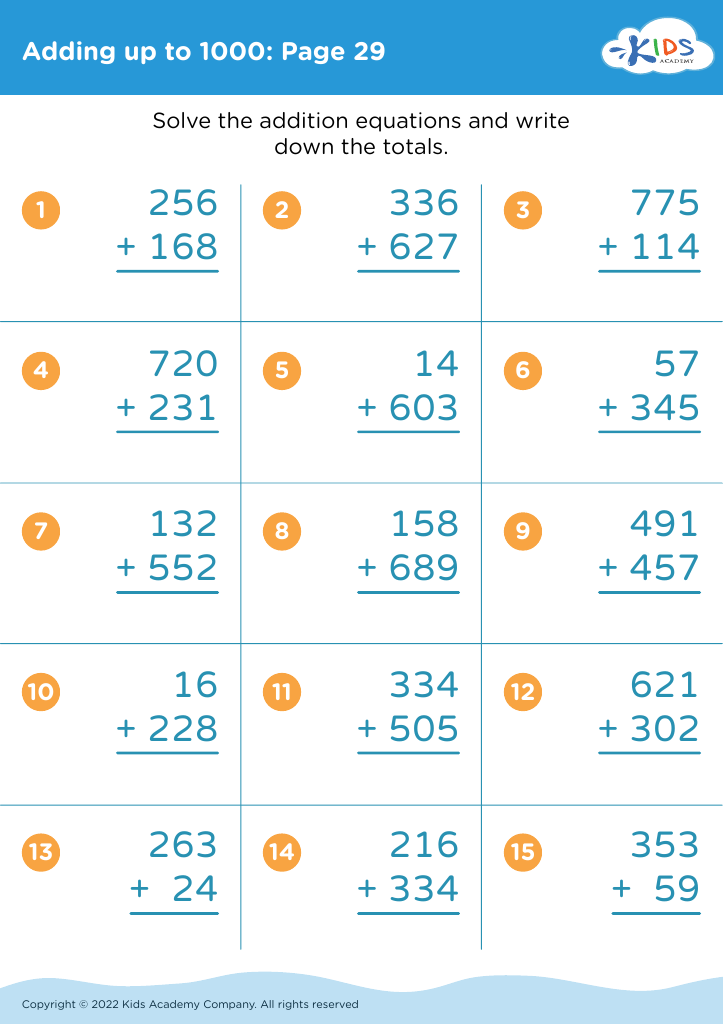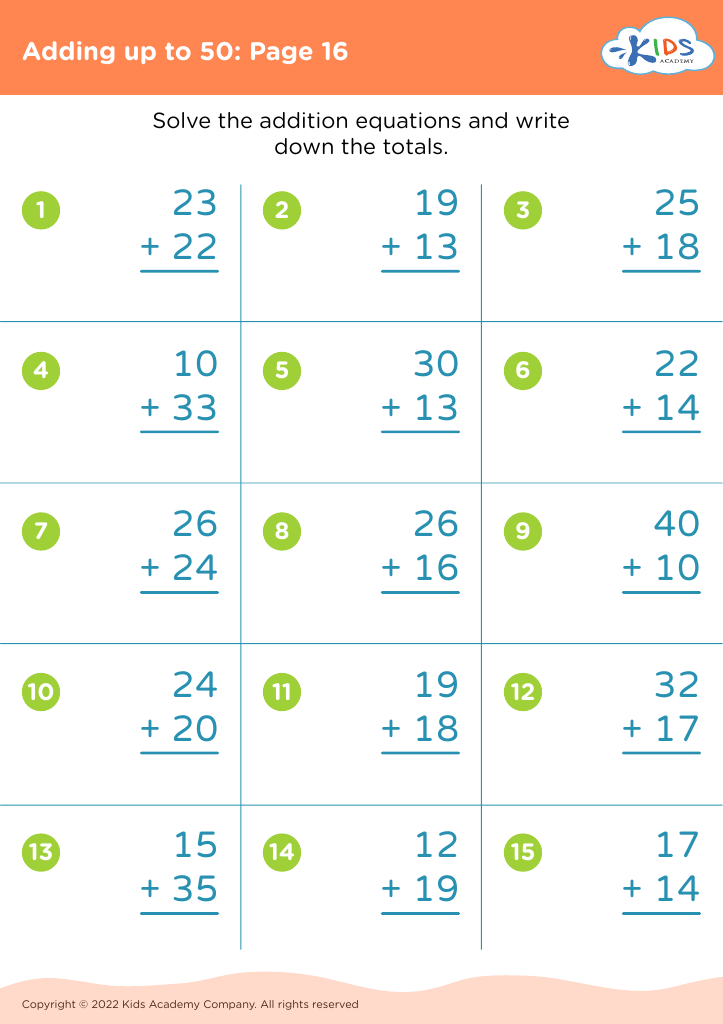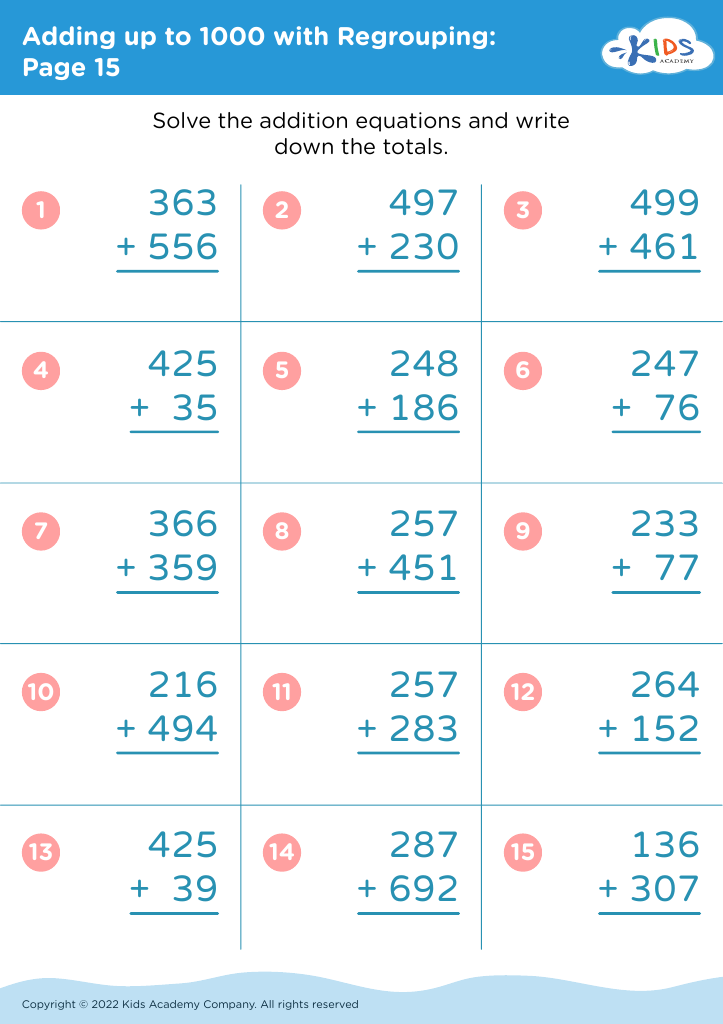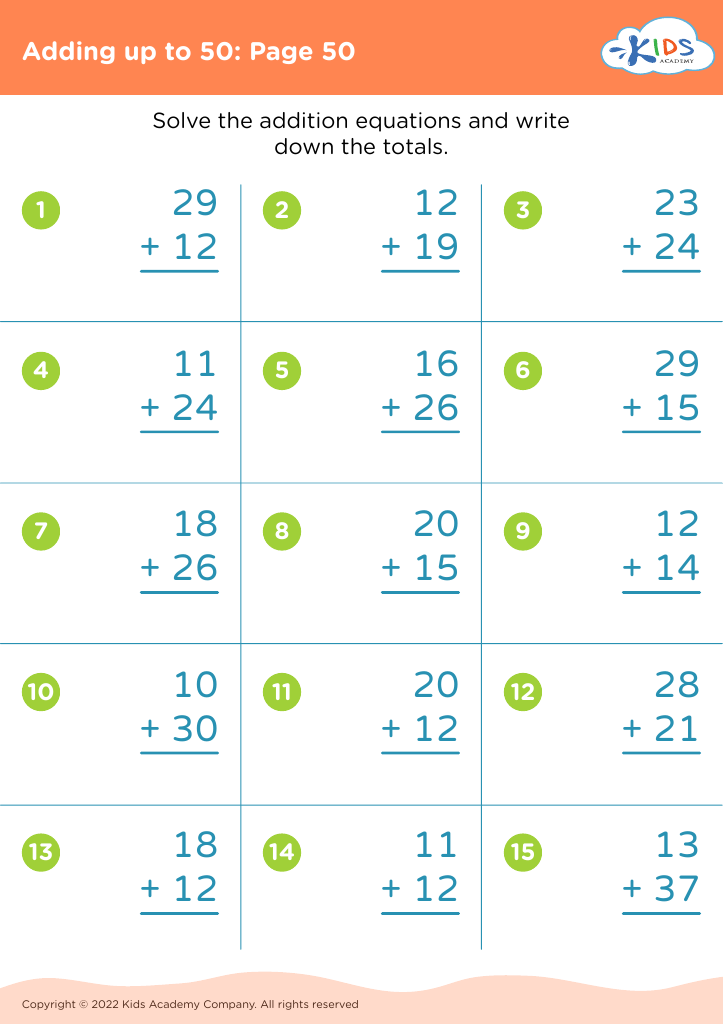Understanding time Math Worksheets for Ages 7-9
10 filtered results
-
From - To
Discover our "Understanding Time Math Worksheets for Ages 7-9" designed to make learning about time fun and easy! These engaging worksheets help children grasp essential time-telling skills, including reading analog and digital clocks, understanding am/pm, and solving time-related problems. Perfect for 2nd and 3rd graders, our worksheets use colorful illustrations and practical scenarios to reinforce learning, ensuring kids become confident in managing time. Parents and teachers will love this valuable resource to supplement classroom teaching or enhance home learning. Equip your child with time skills for lifelong success with our expertly crafted worksheets!


Years Worksheet
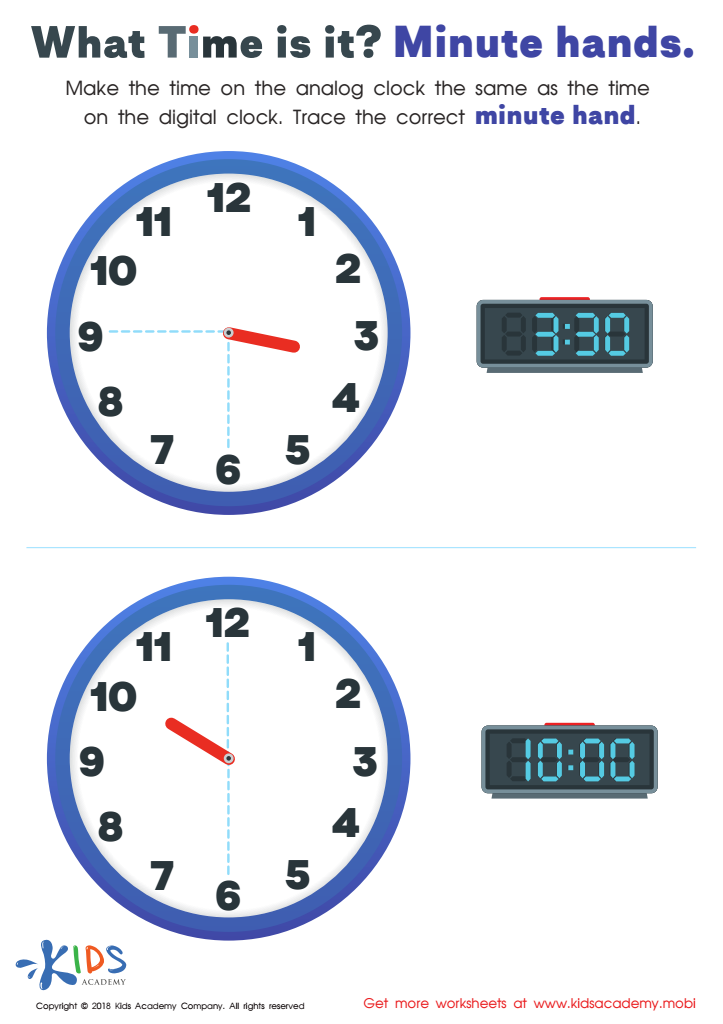

What Time Is it? Minute Hands Worksheet
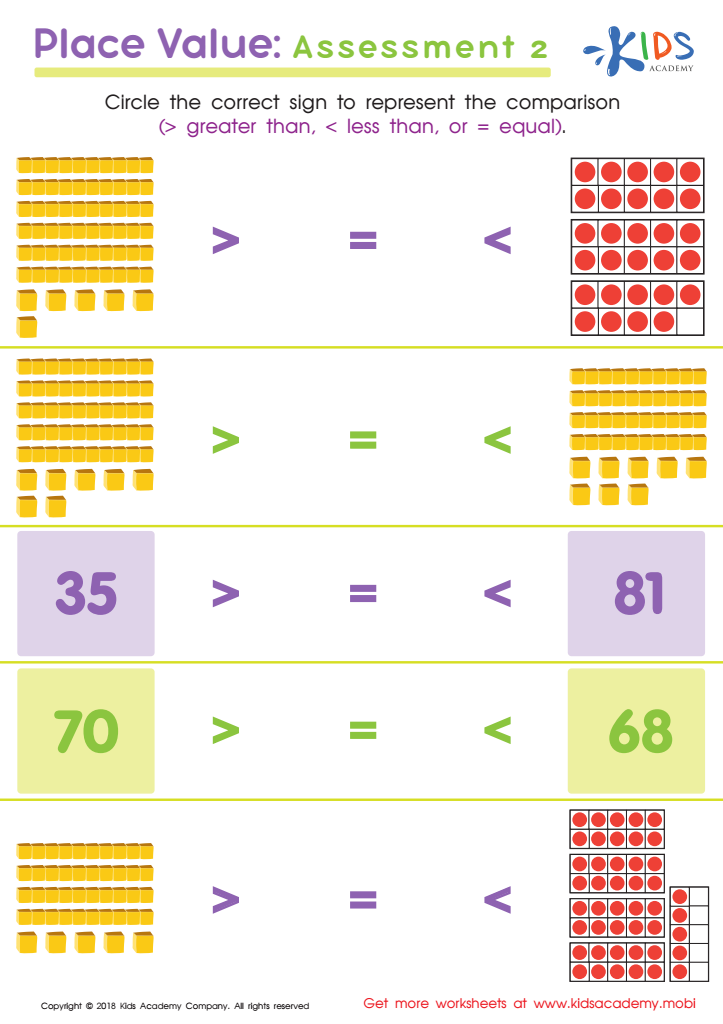

Place Value: Assessment 2 Worksheet
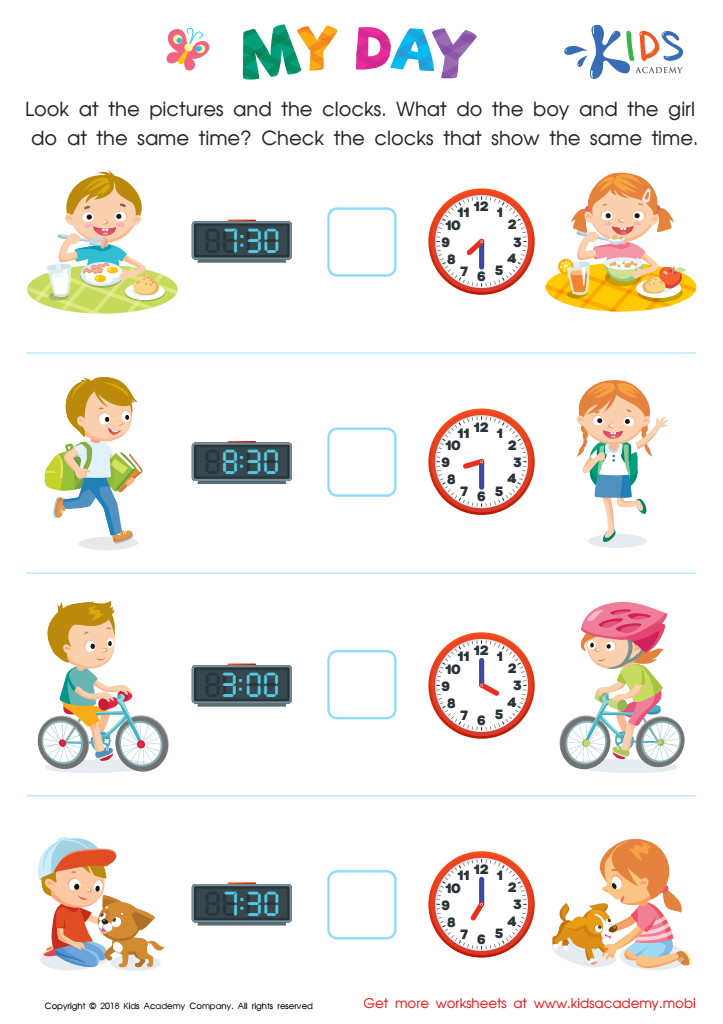

My Day Worksheet
Understanding time is an essential life skill for children aged 7-9, and both parents and teachers should pay meticulous attention to teaching this concept. At this age, kids start developing more precise notions of time, and mastering it can enhance their daily routines, punctuality, and overall planning skills.
For one, understanding the concept of hours, minutes, and seconds directly helps kids manage their day better. They can prepare and complete tasks within a given timeframe, which fosters discipline and responsibility. For instance, knowing that it takes 15 minutes to walk to school will help them leave home on time.
Moreover, understanding time is closely tied to other mathematical skills. It involves counting, skip counting, and understanding fractions (like half-past and quarter-to), which are foundational for more advanced math topics.
Educationally, subjects like science and social studies sometimes require time comprehension, such as reading timelines or scheduling experiments. Socially, children benefit as well. Being able to tell time helps them better understand the concept of waiting and scheduling, reducing anxiety related to uncertainty.
In summary, ensuring that children grasp the concept of time equips them with essential academic capabilities and life skills, making it a foundational aspect of their overall development.
 Assign to My Students
Assign to My Students

